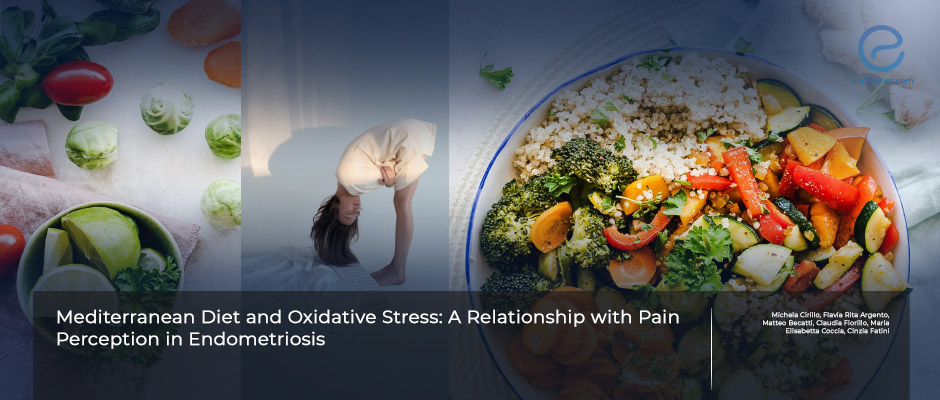Mediterranean Diet Associated With Less Endometriosis Pain?
Nov 10, 2023
Switching to a Mediterranean diet is associated with a reduced perception of pain as early as 3 months in women with endometriosis.
Key Points
Highlights:
- The Mediterranean diet seems to be associated with a reduced pain perception in women with endometriosis.
Importance:
- Switching to a Mediterranean diet could be a strategy for the management of endometriosis-associated pain in the long run.
What’s done here:
- Researchers conducted a prospective study in 35 women with endometriosis.
Key results:
- Non-menstrual pelvic pain, dyspareunia, dysuria, and dyschezia were reduced three months after switching to a Mediterranean diet.
- Dyspareunia and dyschezia were further reduced six months after switching to the Mediterranean diet.
- There was a significant positive correlation between lipid peroxidation and non-menstrual pelvic pain and dysuria.
- There was a negative correlation between oxygen radical absorbance capacity and non-menstrual pain and dyschezia.
Limitations:
- The population size is quite small with only 35 women.
- The study only lasted 6 months and more research is needed to investigate the long-term effects of the Mediterranean diet.
- All women were of Caucasian descent and the results might be different for other ethnic groups.
Lay Summary
There seems to be a link between pain relief in endometriosis and a Mediterranean diet, according to a new study published in the International Journal of Science. This finding suggests that a Mediterranean diet could help manage chronic pain in endometriosis in the long run.
In order to assess the potential role of a change towards the Mediterranean diet on the perception of pain in women with endometriosis, a team of researchers led by Dr. Cinzia Fatini from the Department of Experimental and Clinical Medicine at the University of Florence and the Centre for Assisted Reproductive Technology, Division of Obstetrics and Gynecology, Careggi University Hospital in Florence, Italy conducted a prospective study in 35 women with endometriosis. The researchers investigated the intensity of pain that the women felt using a visual analog scale. They also recorded their vitamin profile and oxidative stress at baseline and three and six months after switching to a Mediterranean diet.
They found that three months after switching to the Mediterranean diet, the intensity of the pain that the women felt during intercourse, urination, and defecation as well as that of non-menstrual pelvic pain were reduced. Six months after starting the diet, pain during intercourse and defecation was further reduced.
The researchers also found a significant positive link between lipid peroxidation or the breakdown of lipids and non-menstrual pelvic pain and pain during urination.
Finally, they found an inverse link between oxygen radical absorbance capacity and non-menstrual pain and pain during defecation
“The results of our study show a clear tendency toward a relationship between pain relief in endometriosis patients and Mediterranean dietary patterns,” the researchers concluded. “The tailored Mediterranean dietary intervention appears promising to treat endometriosis-related symptoms”.
Research Source: https://pubmed.ncbi.nlm.nih.gov/37834048/
perception of pain chronic pelvic pain endometriosis pain lifestyle antiinflammatory diet

